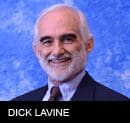Texas is looking for more money for roads, and the question of how the state spends its motor fuels tax funds is likely to gain traction in the legislative session. In 2014 motor fuels tax revenue was $3.3 billion, or 6.5 percent of all state tax collections. This substantial pot of money results from the state’s 20 cents per gallon motor fuels tax on gasoline and diesel, a rate that hasn’t changed since 1991. Everyone agrees that the Texas Department of Transportation (TxDOT) needs more funding, but with little political will to raise taxes and a demonstrated need to find money for Texas highways, the “diversions” from the State Highway Fund are raising some eyebrows.
What is the Gas Tax?
Texas’ tax on gasoline and diesel primarily funds TxDOT and education, as defined in the state Constitution. But millions of gas tax dollars fund other needs, and ending diversions from the gas tax revenue could place a number of other activities into competition for General Revenue with investments in education and health and human services.
The Constitution says one-quarter of motor fuel taxes must go directly to the Available School Fund (ASF), which funds instructional materials, and then is distributed to school districts on a per-student basis. In 2014 the ASF received $810 million in motor fuel taxes. The remaining three-quarters is sent to the State Highway Fund, which received $2.42 billion in motor fuel taxes in 2014.
Diversions
But the Highway Fund is used for a variety of purposes other than funding TxDOT, known as “diversions,” but which are related to the constitutionally designated responsibilities of policing public roadways and administering laws regarding traffic and road safety. As a result, the Legislature allows appropriations from the Highway Fund to the Department of Public Safety ($475 million in 2014) and the Department of Motor Vehicles ($49 million). Notably, the Legislature reduced the appropriation to DMV from $156 million in 2013. Other diversions for related needs accounted for only $22.6 million:
[ultimatetables 1 /]
*DPS administrative license revocation program **Database for instant auto insurance verification by law enforcement
The Legislature also used the Highway Fund to support salary increases for state employees in the agencies listed above ($13.5 million), with a separate increase for DPS troopers ($28.1 million). As done throughout the budget, the Legislature also made separate line-item appropriations from the Highway Fund for associated employee benefits ($376 million).
If the Legislature decides to end the diversion of the motor fuels tax but still wishes to fund DPS, DMV, and the related smaller programs, then the Finance and Appropriations Committees will have to identify another source of support for these programs. With public schools still not funded at their pre-recession per-student level and numerous unmet health and human service needs, the Legislature should go slow on redirecting gasoline tax revenue exclusively to TxDOT.
